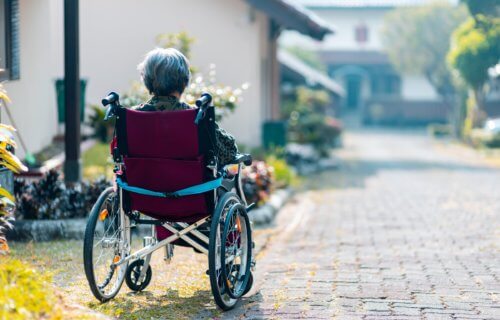ANN ARBOR, Mich. — The number of people living with dementia may be higher than anyone thinks, according to a new study. Researchers from the University of Michigan have discovered that nearly half of all older adults now die with a diagnosis for dementia on their medical records.
Just two decades ago, that number was only 36 percent. According to the Alzheimer’s Association, roughly one in nine Americans (10.7%) over the age of 65 has Alzheimer’s — the most common form of dementia. However, the new report reveals 47 percent of seniors die while dealing with some form of the memory-robbing disease.
Are cases rising or is there more awareness?
Researchers examined data on 3.5 million people over the age of 67 who died between 2004 and 2017 during their study. The review focused on bills each patient’s healthcare provider submitted to the Medicare system during the final two years of their life.
In 2004, those record show that only 35 percent of billing claims mentioned dementia at least one time. By 2017, that number soared to more than 47 percent. When the team narrowed their investigation to patients who had multiple dementia issues on their medical bills over their final two years, that number still included 39 percent of senior deaths. In 2004, it was only 25 percent.
As for the reason behind this spike, researchers note the results may reveal a growing awareness about dementia. More detailed medical records and billing practices by Medicare may also explain the increase — instead of an actual rise in disease cases.
The largest spike in dementia recordings occurred when Medicare started allowing hospitals, hospices, and doctors’ offices to list more diagnoses on their billing forms. At the same time, the National Plan to Address Alzheimer’s Disease went into effect, focusing on public awareness and the quality of care for both patients and caregivers.
Despite this possible explanation, studies estimate that the worldwide dementia rate will likely triple by the year 2050. In the U.S., 12.7 million people over 65 will likely develop dementia within those three decades.

Plan ahead
Study authors say their findings offer older adults a chance to talk to their loved ones in advance about their end-of-life care and healthcare wishes in case they develop the degenerative condition.
The Michigan team found that there has been a drop in the number of seniors dying in regular hospital beds or ICU beds. Meanwhile, the number of older adults receiving hospice care is rising dramatically, going from 36 percent to nearly 63 percent in recent years.
“This shows we have far to go in addressing end-of-life care preferences proactively with those who are recently diagnosed, and their families,” says study senior author Julie Bynum, M.D., Ph.D., professor of geriatric medicine at Michigan Medicine, in a university release. “Where once the concern may have been underdiagnosis, now we can focus on how we use dementia diagnosis rates in everything from national budget planning to adjusting how Medicare reimburses Medicare Advantage plans.”
The findings are published in the journal JAMA Health Forum.
